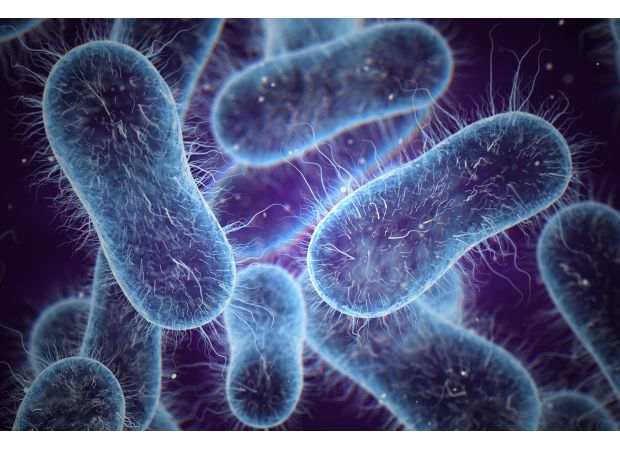Gut bacteria that causes food poisoning may help combat bowel cancer.
Research reveals salmonella is reducing vital protein for immune cells to work, say experts.

Scientists have made a groundbreaking discovery that could potentially revolutionize cancer treatment. It turns out that salmonella, the infamous bacteria responsible for severe food poisoning, may hold the key to fighting bowel cancer. While the idea of using bacteria to combat cancer is not new, previous attempts have not been as effective as hoped. However, with this new knowledge, researchers are optimistic that they can unlock the full potential of salmonella and harness its power to fight cancer.
For years, experts have known that salmonella could be a valuable tool in the fight against cancer. This is because the bacteria has the ability to deplete a specific protein that is essential for the body's immune cells to function. By doing so, salmonella prevents the immune cells from attacking the cancer cells. This is a crucial discovery because it explains why previous attempts at using salmonella as a therapy have not been as successful as expected.
The implications of this finding are enormous. It is now possible to engineer salmonella in a way that it no longer attacks this key protein, allowing the immune cells to do their job and fight the tumour cells. This could potentially lead to a more effective and targeted treatment for cancer. In fact, there is already clinical interest in combining bacterial therapies with immune checkpoint inhibitors, which are drugs that block certain proteins in the immune system to allow white blood cells called T cells to kill cancer cells.
Despite the potential of using salmonella as a cancer therapy, there are still many unknowns. For instance, the response of T cells to salmonella cancer therapies is not well understood. However, using mice as a model, the research team was able to demonstrate that salmonella depletes a specific amino acid called asparagine, which is crucial for T cells to function. Armed with this knowledge, scientists can now work on engineering salmonella to not attack this amino acid, thus allowing T cells to effectively fight cancer cells.
Lead researcher Dr Kendle Maslowski explains the significance of this discovery, "We know attenuated salmonella and other bacteria have the power to tackle cancer, however until now it was not known why it was not proving as effective as it should be." This breakthrough could lead to new and more effective treatments for bowel cancer, which affects over 44,000 people in the UK every year.
It is important to note that salmonella is a potentially dangerous bacteria that can cause food poisoning. It is commonly found in the guts of animals such as chickens, cows, and pigs, and can contaminate food products like eggs, chicken, and pork. Symptoms of a salmonella infection include diarrhea, stomach cramps, nausea, vomiting, and fever, and can last for several days. However, with proper precautions and careful engineering, salmonella can be transformed from a disease-causing bacteria into a powerful weapon against cancer.
The study was funded by Cancer Research UK and published in the journal EMBO Molecular Medicine. Dr Catherine Elliott, director of research at the charity, believes that this discovery could have far-reaching implications for cancer treatment. "The power of bacteria has long been acknowledged as likely to hold significant potential to tackle disease," she says. "This exciting development from the Cancer Research UK Scotland Institute could lead to more effective treatments for patients with colorectal, and other cancers in future, providing hope for patients." With this new knowledge, the future of cancer treatment looks brighter than ever before.






